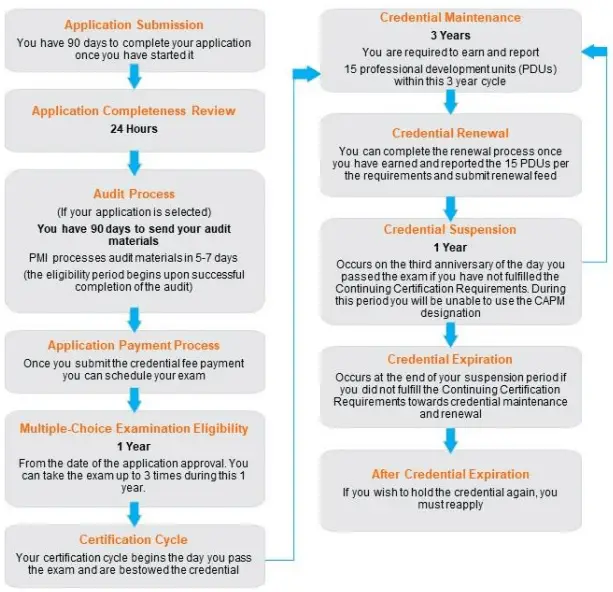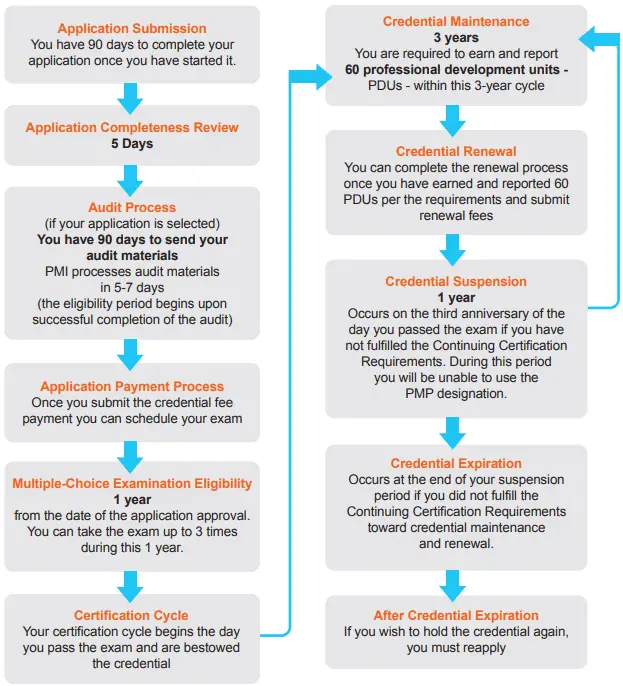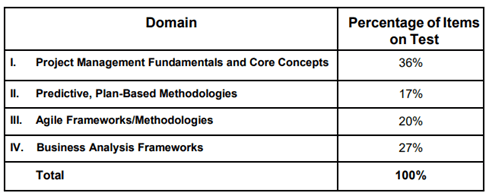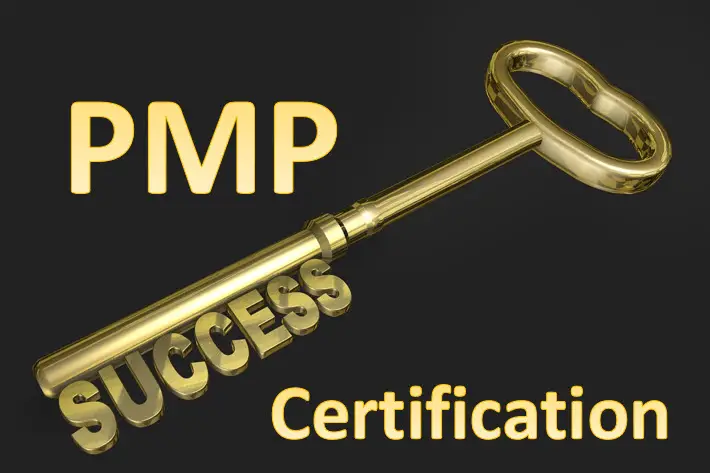Last Updated on July 12, 2025 by andrewshih
Project Management Professional (PMP) and Certified Associate in Project Management (CAPM) are two widely recognized certifications in the project management field. These certifications can help you advance your career and demonstrate your proficiency in project management.
In this CAPM vs PMP blog post, we will compare the two certifications to help you decide which one is suitable for you.
- CAPM vs PMP: What Is it?
- CAPM vs PMP: Certification Process
- CAPM vs PMP: Requirements
- CAPM vs PMP: Exam and Exam Difficulty
- CAPM vs PMP: Exam Cost
- CAPM vs PMP: Exam Preparation
- CAPM vs PMP: Certification Renewal
- CAPM vs PMP: Is it worth it?
- CAPM vs PMP: Comparision Summary
- CAPM vs PMP: Which should you get?
- FAQ
CAPM vs PMP: What Is it?
In case you are new to the certifications, let’s briefly define what they are.
What is CAPM Certification?
CAPM Certification is an entry-level certification in project management offered by the Project Management Institute (PMI). This certification is designed for individuals new to project management and who want to learn the fundamentals. CAPM certification demonstrates that you have a basic understanding of project management processes and terminology.
What is PMP Certification?
PMP Certification is a professional-level certification in project management offered by the PMI. This certification is designed for experienced project managers who have demonstrated the ability to lead and direct projects. PMP certification demonstrates that you have a deep understanding of project management processes, tools, and techniques.
CAPM vs PMP: Certification Process
CAPM and PMP certifications have very similar processes. You must submit your application and get the approval before taking the exam. Once you pass the exam, you are certified and need to renew the certification every 3 years.
CAPM certification process
Here is the CAPM certification process taken from PMI CAPM Handbook.

PMP certification process
Here is the CAPM certification process taken from the PMI PMP Handbook.
One key difference between CAPM and PMP certification is that you need to document 3 years of project management experience when you submit the PMP application.
Some of the students may find writing the PMP project description challenging. You can learn more about step-by-step instructions for completing your PMP application with examples.

CAPM vs PMP: Requirements
CAPM requirements
- A secondary degree (high school diploma, associate degree, or the global equivalent)
- 23 hours of project management education completed before the exam.
There is no work experience requirement for the CAPM certification.
PMP requirements
There are several paths to satisfy the PMP requirements.
Educational Background | Project Management Experience | Project Management |
Secondary degree (high school diploma, associate’s degree or global equivalent) | Minimum five years/60 months of unique non-overlapping professional project management experience* | 35 contact hours of |
OR | ||
Four-year degree (bachelor’s degree or global equivalent) | Minimum three years/36 months of unique non-overlapping professional project management experience* | 35 contact hours of |
OR | ||
Bachelor's or post-graduate | Minimum two years/24 months of unique non-overlapping professional project management experience* | 35 contact hours of formal education unless you are an active CAPM holder |
CAPM vs PMP: Exam and Exam Difficulty
CAPM exam:
The CAPM examination is comprised of 150 questions. There are 15 unscored pretest questions embedded within the 150 questions. You may encounter the following question formats during the exam:
- Most questions will be standard multiple-choice questions
- Matching questions: Match items from the two columns.
- Hot spot questions: A graphic of several clickable spots.
- Animation Video multiple choice questions: Watch an animated video scenario and answer the multiple-choice questions.
- Comic Strip multiple choice questions: Read a comic strip scenario and answer the multiple choice questions.
You have 3 hours to complete the exam, with a 10-minute break during the exam.
The passing score is 65%
CAPM Exam Domain Areas

- Project Management Fundamentals and Core Concepts: Key learning includes – various project life cycles & processes, project management planning, project roles & responsibilities, project execution, tools, and techniques.
- Predictive Plan-Based Methodologies: Key learning includes – identifying the suitability of predictive approaches, project scheduling (ex. Critical path, WBS), project controls (ex. Identifying artifacts, calculating cost and schedule variances)
- Agile Frameworks/Methodologies: Key learning includes identifying the suitability of adaptive approaches, project iterations, project control, adaptive components, and preparing and executing task management steps.
- Business Analysis Frameworks: Key learning includes – business analysis (BA) roles and responsibilities, conducting stakeholder communication, gathering requirements, product roadmaps, and validating requirements.
PMP Exam:
PMP exam consists of 180 questions with a combination of multiple-choice, multiple responses, matching, hotspot, and limited fill-in-the-blank. There are 5 unscored pretest questions embedded within the 180 questions.
You have 230 minutes to complete the exam, with two 10-minute breaks at 60 and 120-question marks.
The passing score is 61% of the graded questions.
PMP Exam Domain Areas

- People: Skills and mindsets to lead and motivate a project team throughout a project effectively. Key learnings include – managing conflict, leading a team, supporting team performance, empowering team members and stakeholders, team development, building a team, addressing obstacles, negotiating, collaborating with stakeholders, virtual team, ground rules, mentoring, and emotional intelligence.
- Process: Using predictive, hybrid, and agile approaches to determine which way of working is best for each project. Key learnings include planning and managing all aspects of a project, such as initiation, planning, execution, monitoring and controlling communication, risk, stakeholders, budget, resource, schedule, quality, scope, procurement, and changes.
- Business Environment: Understand the success of a project and its impact on overall strategic organizational goals. Key learnings include – planning and managing project compliance, evaluating and delivering project benefits and value, addressing business environment changes, and supporting organizational changes.
The PMP exam is generally considered more difficult than the CAPM exam because most of the questions are situational-based, which requires that students not only have a good understanding of the material but also know how to apply the knowledge.
CAPM vs PMP: Exam Cost
CAPM cost:
PMI member: $225
Non-PMI member: $300
PMP cost:
PMI member: $405
Non-PMI member: $555
You can get a comprehensive list of the costs of getting PMP certification with a calculator here.
CAPM vs PMP: Exam Preparation
CAPM exam preparation
How to prepare for the CAPM exam?
- Complete the 23 hours of project management education required for the exam.
- Review the CAPM Exam Content Outline provided by PMI
- Use study materials such as books, practice exams, and online courses
- Join a study group or boot camp with a live instructor to help you prepare for the exam
- Practice answering sample exam questions to get familiar with the format and content of the exam.
CAMP exam books
PMI published the reference list, and CAPM exam is based on the following books. If you are a PMI member, you can download the digital copy of PMBOK and Agile Practice Guide for free. However, if you want to obtain a physical copy, you can buy it at the same or lower price on Amazon if you purchase Kindle format or if the used book is available.
- PMBOK® 7thedition
- Process Groups: A Practice Guide
- Agile Practice Guide
- Business Analysis for Practitioners: A Practice Guide
- The PMI Guide to Business Analysis
- Effective Project Management: Traditional, Agile, Extreme, Hybrid
- Project Management Answer Book, 2nd Edition
PMP exam preparation
How to prepare for the PMP exam?
- Complete the 35 hours of project management education required for the exam.
- Review the PMP Exam Content Outline provided by PMI
- Use study materials such as books, practice exams, and online courses
- Join a study group or boot camp with a live instructor to help you prepare for the exam
- Practice answering sample exam questions to get familiar with the format and content of the exam
PMP exam books
In addition to the PMBOK and Agile Practice Guide, PMI listed the top 10 books used for creating the PMP exam questions. In other words, PMI does not publish a complete list.
- PMBOK® 7thedition
- PMBOK® 6thedition
- Agile Practice Guide
- Project Management: A Systems Approach to Planning, Scheduling, and Controlling
- Effective Project Management: Traditional, Agile, Extreme, Hybrid
- Fundamentals of Technology Project Management, 2nd Edition
- Project Managers Portable Handbook, 3rd Edition
- Information Technology Project Management, 7th Edition
- Essential Scrum: A Practical Guide to the Most Popular Agile Process
- Project Management: The Managerial Process
- The Project Management Tool Kit: 100 Tips and Techniques for Getting the Job Done Right
Fortunately, you do not need to cram all the books to pass the PMP exam. Most PMP aspirants utilize a combination of one or more exam prep resources to prepare for this difficult exam.
However, these books can be helpful references to continue learning and advancing your project management knowledge.
CAPM vs PMP: Certification Renewal
CAPM certification renewal
To maintain your CAPM certification, you need to earn 15 Professional Development Units (PDUs) every 3 years. The renewal fee is $60 for PMI members and $150 for nonmembers.
PMP certification renewal
To maintain your PMP certification, you will need to earn 60 Professional Development Units (PDUs) every 3 years and pay a renewal fee of $60 if you are a PMI member or $150 for a non-member.
CAPM vs PMP: Is it worth it?
Is CAPM worth it?
Earning a CAPM certification can open doors to various entry-level positions in project management, such as project coordinator associate or junior project manager. This certification demonstrates a foundational understanding of project management principles and can help individuals stand out in a competitive job market.
If you’re interested in pursuing a career in project management, obtaining a CAPM certification is a great first step. Not only does it demonstrate your commitment to the field, but it also fulfills the 35-hour education and training requirement needed to qualify for the PMP exam. You’ll be one step closer to becoming a certified Project Management Professional.
Is PMP worth it?
PMP certification is an excellent choice for experienced project managers who want to demonstrate their mastery of project management. PMP certification can help you demonstrate your ability to lead and direct projects and increase your earning potential.
There are many benefits to PMP certification. Most importantly, earning a PMP certification can have a positive impact on a project professional’s salary.
According to PMI, those with a PMP certification earn a median salary that is 16% higher than those without it. In the United States, the difference is even more significant, with PMP holders earning a median salary that is 32% higher than their non-certified counterparts.
CAPM vs PMP: Comparision Summary
Here is a summary table comparing CAPM and PMP certification.
CAPM | PMP | |
Purpose | Entry-level certification for project management | Advanced certification for experienced project managers |
Eligible Criteria |
|
|
Exam Questions | 150 | 230 |
Exam Duration | 180 minutes | 230 minutes |
Exam Break | One 10-min break | Two 20-min break |
Exam Cost | $225 for PMI members. $300 for non-members | $405 for PMI members. $555 for non-members |
Exam Content | Project Management Fundamentals and Core Concepts. Predictive & Agile Plan-Based Methodologies. Business Analysis Frameworks. | People. Processs. Business Environment. |
Exam Difficulty | Relatively easy; designed for entry-level project management professionals. Mostly knowledge-based exam. | Difficult; designed for experienced project management professionals. Mostly situational awareness exam. |
Renewal Period | Every 3 Years | Every 3 Years |
Renewal PDU | 15 PDUs | 60 PDUs |
Renewal Fee | $60 for PMI members. $150 for nonmembers. | $60 for PMI members. $150 for nonmembers. |
Overall, CAPM and PMP certifications are different in terms of their purpose, eligibility criteria, exam structure, exam content, exam difficulty, and certification validity.
CAPM is an entry-level certification for individuals who are starting their career in project management and provides basic knowledge and understanding of project management principles and terminology.
On the other hand, PMP is an advanced certification for experienced project managers who want to apply project management knowledge, skills, tools, and techniques to real-life projects. Therefore, it is important to carefully consider your experience and career goals before choosing the certification that best fits your needs.
CAPM vs PMP: Which should you get?
The choice between CAPM and PMP certification depends on your level of experience and career goals. If you are new to project management and want to learn the fundamentals, CAPM certification is a great choice. If you have experience in project management and want to demonstrate your mastery of project management, PMP certification is the right choice.
FAQ
PMP is a more advanced certification than CAPM and is generally considered better for experienced project managers. CAPM is an entry-level certification and is better suited for individuals who are new to project management.
Is the PMP harder than CAPM?
Yes, the PMP exam is generally considered more difficult than the CAPM exam because it covers more advanced project management concepts. Most of the questions on the PMP exam test your situational awareness and are not simply a test of memorization. You can learn more about the PMP exam and study tips here.
Does CAPM qualify you for PMP?
CAPM certification brings you one step closer to PMP certification. Your CAPM certification will satisfy the 35-contact-hour as one of the requirements before taking the PMP exam. So, the effort you put into CAPM certification is not wasted if you plan to pursue PMP certification in the near future.
Can I skip CAPM and go to PMP?
Yes, if you meet the requirements for PMP certification, you can skip the CAPM certification and go directly to the PMP certification.
Can you upgrade CAPM to PMP?
Yes, you can upgrade from CAPM to PMP certification if you meet the requirements for PMP certification, including the required project management experience and education. Once you meet the requirement, you are eligible to take the PMP exam and certified for PMP.
REFERENCE:



